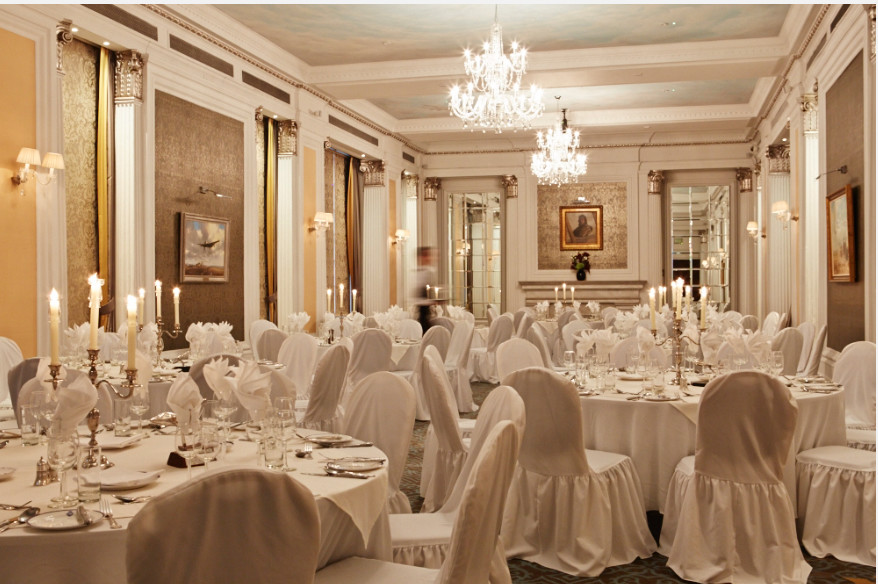Millennials – The Generation it’s Fun to Hate
Recruiting the next generation of the Royal Air Force
Recently I had the privilege of being invited to speak at the annual dinner of the Personnel branch of the Royal Air Force. Essentially this group is made up of Personnel Support and Personnel Training Officers; they have a wide remit encompassing among other duties HR, Welfare, Media, Comms, Finance, Recruiting, Training and Physical Education.
My ….challenge then was to do my best to deliver something relevant from my experience both professional – 30 years working in media in large corporate cultures, most recently with a professional focus on social media..
I was invited by Squadron leader Kerry Shardlow whose brief to me stated that this division was in a sense the glue that keeps the rest of the Air Force together. She explained their focus is people capability, and the challenges currently facing the senior team are those of recruiting and retaining members against the demands of an ever-evolving workplace, and how to prepare those leaving the Force for re-integration into this civilian workplace.
My immediate challenge then was to do my best to deliver something relevant from my experience both professional – 30 years working in media in large corporate cultures, most recently with a professional focus on social media, and personal, as a working mother of 3 teens, soon to be seeking work in this ever-evolving workplace.
The setting was the stunning RAF club in Mayfair with its striking paintings, specially designed stained glass window and unique badge corridor.
After a lot of formalities, toasts, introductions and thank yous, this is largely how it went:
“Kerry tells me the that the theme for your upcoming conference is building the next generation of the Air Force and that a lot of time and energy is being dedicated to looking at new ways of recruiting and retaining members against the challenges imposed by today’s landscape. A landscape, where we see humans being replaced by automation and robots, where it is hard to keep pace with the transformational change to our workplaces as a result of new technologies, where for many, social media is the primary source of news and information and where millennials, whom employers still struggle to understand, are soon to represent 75% of the global workforce.
each generation…is less likely to have served in the military, than the last.
A recent BBC feature entitled Millennials the generation it’s fun to hate shows research to suggest that each generation, bloomers, gen X and millennials becoming more metropolitan, better educated and more ethnically diverse, and less likely to be married, and interestingly perhaps for you is less likely to have served in the military, than the last. So, it seems your challenge is real and perhaps more acute than it’s ever been.
In a recent interview, Simon Sinek, the author, marketer and motivational speaker, describes millennials as entitled, narcissistic, unfocused, lazy and self-interested.
…the pressures on young people in the 21st century, are way beyond anything I had to bear growing up in the 70s.
I spend many hours with millennials and have recruited many over the past few years and I rarely meet any I could call ‘lazy’. You see the pressures on young people in the 21st century, are way beyond anything I had to bear growing up in the 70s.
I went to a local school, did well academically which seemed to exempt me from having to excel in sport or music or anything else. Today students, however, must not only perform well academically but play for the school teams, master a couple of instruments, be excellent debaters, polish off a series of Duke of Edinburgh Awards and find time for hours of community service.
I left school in the 80s, and like many of my generation, I went to University with a full maintenance grant and no fees. I went to one of the UK’s top universities and cannot remember it being hugely competitive to get in.
Now my children were advised to follow and engage with their chosen university on social media from their early teens to try and increase their chances of entry. And of course, as the world has opened up, so have the choices with options to study both in the UK, Europe or further afield, with US universities being popular choices for those with the means. And once they graduate, competition for jobs is not just locally or nationally, but on a world stage.
While, on the other hand, I glided through university in something akin to gay abandon with no financial worries and no worries of finding work. Such was my relaxed and debt free state on graduating, that I went travelling, safe in the knowledge that whenever I chose to return I would find my ideal job waiting for me. In fact, on returning, I was offered the first job for which I applied, advertised in the recruitment pages of the Media Guardian. It was all so very effortless and relating this story now, I feel with hindsight that my behaviour better suits the adjective ‘entitled’ that Mr Sinek attributes to today’s millennial generation.
And here is where I think there is a huge opportunity for RAF recruitment. You see millennials don’t care about the length of their tenure nearly as much as they do the intensity of on-the-job learning and growth.
I do agree though, that this generation has been dealt a bad hand and that our corporate environments are not helping our millennials. Many companies have tried in superficial ways to make themselves attractive to millennials for instance by offering more flexible work environments or in-office food and drink perks. But they haven’t changed the fundamentals of how they structure jobs and careers and they follow outdated talent strategies that bear little relation to how Gen Y think about work. So, we have bright, creative, talented and diligent individuals who are being let down by poor leadership and cultures that care more about numbers and finanacial gain than they do about nurturing commitment and teaching the value of goals.
Most companies emphasise retention above all else; they organise hiring, compensation, development, and so on with the goal of keeping top performers for as long as possible.
And here is where I think there is a huge opportunity for RAF recruitment. You see millennials don’t care about the length of their tenure nearly as much as they do the intensity of on-the-job learning and growth. They want to shoulder increasing amounts of responsibility and to progress quickly, with leaders and colleagues that can push them onward and help them grow. And they want an inspiring vision that helps motivate them to work hard and excel.
As it turns out, some of the world’s best bosses have figured this out. And they have built legacies by establishing an ongoing flow of talent with an emphasis on employee development NOT retention
Interestingly, these bosses all treated their employees the way millennials want to be treated, offering them personal and customised coaching, tremendous advancement opportunities, creative freedom, collaborative learning opportunities, and ultimately, the chance to do meaningful work. Ambitious employees want to have a chance to make a difference, and they allow them to do just that.
It [The RAF] seems to offer everything our millennials tell us they are looking for – intense on- the- job training, a neat hierarchical structure where progress is easy to chart, the inspiring vision of those in the senior ranks and crucially, the opportunity to do really meaningful work with a new challenge every 2/3 years.
Superbosses recognised that it was better to have great people for a shorter period than mediocre people over the long-term. So, this got me thinking how well placed the RAF is to play this new mindset. It seems to offer everything our millennials tell us they are looking for – intense on- the- job training, a neat hierarchical structure where progress is easy to chart, the inspiring vision of those in the senior ranks and crucially, it offers the opportunity to do really meaningful work with a new challenge every 2/3 years.
Indeed, when I think back to the start of my own career in a small French publishing company in a tiny office in Victoria, I still remember the invaluable business lessons taught to me by my first boss who cared about nurturing me and preparing me for a long career in international media, even though he knew I would want to progress and work for a bigger higher profile company before long. Ironically this approach meant he did keep me for longer than I might have wanted to stay had he not exhibited behaviour.
Targeting our millennial audience is difficult. They resist being advertised to and have an average attention span of 8 seconds, which incidentally is less than that of a goldfish. With this mind, so many brands have become masters at engaging audiences naturally in their social media feeds with ‘native’ content that is useful, entertaining and engaging. If you advertise to me they say I’ll stop following you or scroll past you. And we know that engagement (likes comments and shares) is the metric that counts rather the number of impressions your content generates.
So now let’s fast forward to 2025 when 75% of our will be millennials and perhaps some of you will be preparing to seek employment in the brave new world outside the RAF. I found myself in a not too dissimilar position last year when I left the BBC where I had worked for 18 years. Like the RAF the BBC is an institution.
I worked for BBC Worldwide the main commercial arm and owned subsidiary of the BBC, and while the service, both TV and online was funded by advertising and subscriptions, unlike our commercial competitors we had a higher purpose to build the BBC brands, audiences and reputation across the world. When I left the institution, I felt uneasy about my next steps. So much so that I thought perhaps my skill set was so particular to the BBC that it may not be of much use beyond.
What built my confidence at this time was a course of study in a subject which was way out of comfort zone but was very much in the zeitgeist – that of the strategic management of social media. Over the year I learnt about a whole new fascinating industry, I met digital innovators, clever content creators and people with the job titles of Chief Happiness Officer, Senior Problem Solver and Head of Culture – yes they really exist outside of the BBC Ones’s comedy satire W1A!
And so, I began to build my brand, writing and blogging and posting across the relevant social media channels using all my newly acquired skills and learnings to the extent that before I even graduated, I was contacted via LinkedIn by 2 media companies interested in offering me work and I’m now with ShootMedia an award-winning content agency. I went for Chief Happiness officer but sadly they weren’t having any of it!
And so by way of conclusion, ….
In terms of attracting bright, creative, talented individuals into the RAF it should be easier than you think given we know that what they are looking for is a package that the RAF can genuinely offer. We know too where and how we should be engaging with them – and it’s not through advertising and certainly not via the recruitment pages of the Media Guardian or the equivalent. And with all the skills and the experience gained in supporting one of the finest forces in the world, with good mentoring, relevant training or study to prepare for a modern workforce – the transition to work beyond the RAF should be plain sailing or should it be plain flying.
Thank you.”
Alison Farmery: Director, Lagoon Media, producing content and building products that help people become more informed, inspired, and engaged tomorrow than they are today.





